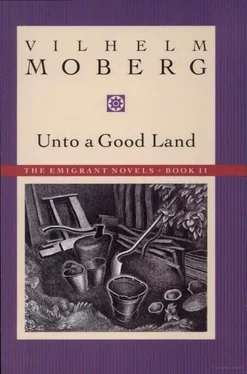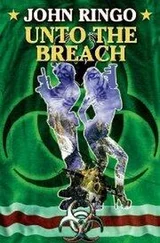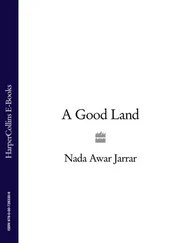Rough, broad-shouldered peasants, their faces marked by all the seasons of the year, stood here with hands behind their backs, their eyes appraising the new land. On their bodies hung heavy wadmal clothes, wrinkled and baggy. (These woolen garments — such splendid protection against the bitter cold of the North Sea — were now drenched with sweat and a burden to their wearers on America’s sunny shores.) There was a constrained lust for action in these men’s hard muscles and sinews; their bodies were power restrained. Crowded in narrow ship’s space for many weeks, their hands had had no chores to perform. They had arrived on a new continent anxious to resume accustomed duties, their hands eager to hold the familiar ox thongs and plow handles. Their hands possessed much knowledge, acquired from childhood, inherited through centuries. When now again they stood on solid ground, they felt the lust for work spring up after the painful time of inactivity. But yet a while must their forced rest last, yet a while must they carry their hands behind their backs.
Mothers sat leaning against tree trunks in the park, feeding their babies from the breast; the women emptied their scrawny breasts without filling the stomachs of their babies. The milk gave out long before the babies’ hunger, and the little ones cried and fretted, irritated by the heat and discomfort of the heavy woolen garments in which they were bundled. And the mothers rocked their children on their knees — mother-love’s cradle, the softest and most comfortable cradle on earth — and tried to lull them to sleep. But the babies whimpered, they wanted to stay awake; now that their eyes saw for the first time the land their parents had chosen for them, it seemed as if they wanted to take in everything; this was the land where they were to grow up, the land that was to be their home.
A five-year-old boy, wrapped in a coat that hung to his ankles, sat on his haunches in the grass, chewing a crust of rye bread, a coarse, dark loaf; spots of mildew testified to the fact that this bread had not been baked yesterday, nor on this continent; it came from an old oven in a hidden, stony part of Europe. The boy chewed ravenously and swallowed with determination; the bread in his hand disappeared until only a few crumbs were left; these he tossed into his mouth. The loaf was finished but his hunger remained, and the child looked questioningly at his empty hand: Why did food end before hunger? Mother said: “It is the last loaf I have, the last one from home; now you will never get any more bread from home.” And the boy pondered this. . Why no more bread from home?
In Battery Park the immigrants took stock of their food baskets; they counted their loaves of bread and scraped away the mildew; many were those who ate their last slice in confidence that the soil of the new country would feed them from now on.
An even stream of people moved along the river road which separated Battery Park from Castle Garden: these were the inhabitants of New York, the people who lived in the greatest city of North America. Here walked leisurely men in tall, black hats, dressed in tail coats and tight-fitting trousers which enclosed their legs almost like cloth skin. Here walked women in bonnets and tightly laced waists from which hung skirts of generous proportions, reaching the ground. Others had skirts spread out like birds’ beautiful tail feathers, and of all colors: red, white, green, and gold; checkered skirts, polka-dotted and striped. Over their heads the women held parasols in bright colors, like small-paned canopies of heaven. The men carried Spanish canes.
The walkers paid no attention to the people camping in Battery Park. The appearance of immigrants under the trees in the park was neither new nor unusual — they saw immigrants almost every day when walking along the river. Shiploads of immigrants arrived daily and would continue to arrive; the people landed, waited in Battery Park for inland transportation, moved on and were gone. A new group arrived in their place — new people gathered here constantly, waiting under the trees. This was the endless train of aliens, outsiders; the immigrants were one of the permanent sights for promenading New Yorkers; they would always be there, they were part of the park, they belonged to it, like the leaves on the trees and the grass on the ground. The immigrants, it seemed, would always wait there, under the trees in Battery Park.
The immigrants came from places where they knew everyone and were known; they had seldom seen a stranger. Now they had arrived in a land where everyone was a stranger; the inhabitants of New York were a new and strange sight to the immigrants. The people in the park looked at the stream of people on the road: the newly arrived looked at those who were established here; these were the Americans, settled, comfortable, having found their place in the new land, able to move unhindered, walking in security, free of worries, and able to speak to any one they met. The immigrants were strayed wanderers, seeking a place to live and work; the others had found what they were seeking; the homeless observed those who had homes.
The home seekers stopped a moment in Battery Park, alien, confused, bewildered, insecure. They were overtaken by surprise at their first meeting with the unknown country. But they were to participate in the breaking of the land and the changing of the character of the country they had just entered, these waiting here in the cool grove on the East River.
III. MILK AND WHITE BREAD
— 1—
The day they left Sweden the emigrants from Ljuder Parish had counted sixteen in their group. For one of them a watery grave had opened during the voyage, but as Fina-Kajsa from Öland had joined their company, they were still sixteen when they gathered together on the American shore in Battery Park.
Danjel Andreasson of Kärragärde sat by himself, a little to the side of the others, next to his America chest. He was reading in his psalmbook, his head was bent down, and his bushy, brown beard swept the book, open at Hymn 344—”At the Death of a Mate.” A dried flower, a reseda, lay as bookmark between the leaves; it had grown in the flower bed at home, cared for and tended by his wife. The page with the psalm was badly worn from much use.
O Death, why hast thou snatched away
My bosom Love from me?
In sorrow and despair I pray,
But comfort flees from me. .
Danjel Andreasson had arrived in the new land to which the Lord had guided him with four motherless little children. He had lost Inga-Lena, his dear wife and earthly helpmate; the Lord had stricken him and trampled on him; he was now only a wretched human worm, wriggling under the heel of the Lord.
He had searched his inner self and arrived at a new understanding: he had sinned the sin of self-righteousness. In his presumption he had considered himself better than others and had believed that his sins once and for all had been washed away and tied up in Christ’s napkin cloth that bound His head at burial. He had held himself righteous, unable to sin any more. But on the ship, as he had lain in all his wretchedness covered with his vomit, listening to the tempest and feeling the depths below him, he had learned that he had been found wanting in the eyes of the Lord.
In his vanity he had believed that when he reached the harbor he would be able to praise God in the foreign language; in his conceit he had considered himself an equal of Christ’s apostles who were visited by the Holy Ghost on the first Whitsuntide, and he had thought that the outpouring of the Holy Spirit would take place in him so that he would be able to use the American tongue. His Creator had already given him a speaking tongue, and this in itself was so great a miracle that it was presumptuous to expect God to give him the ability to use this tongue for all languages.
Читать дальше










